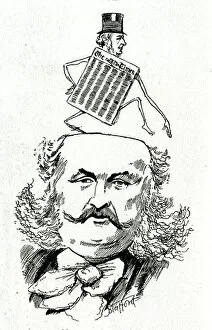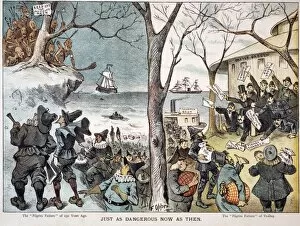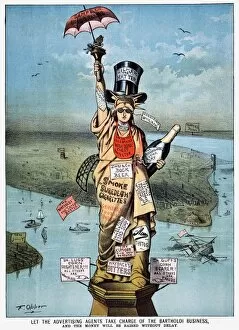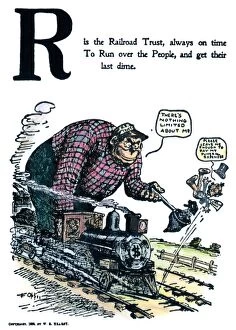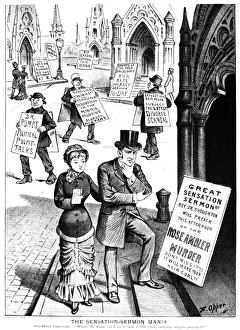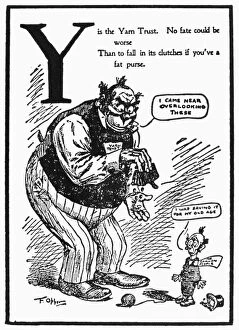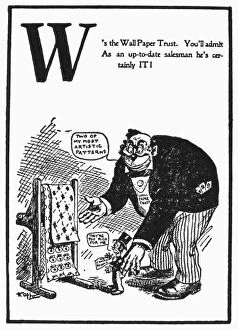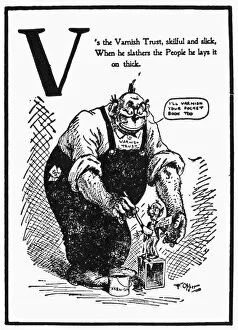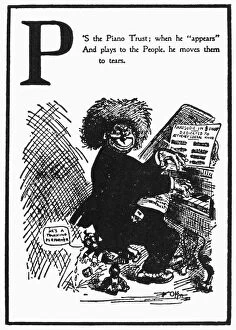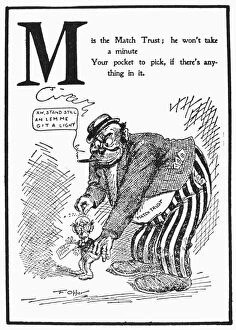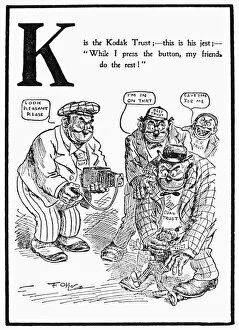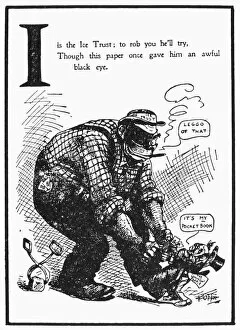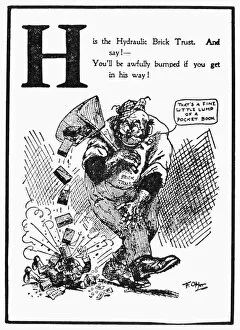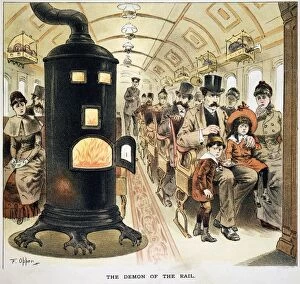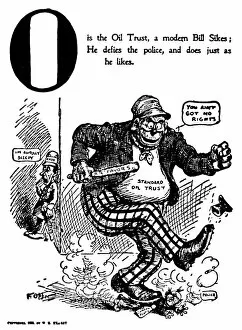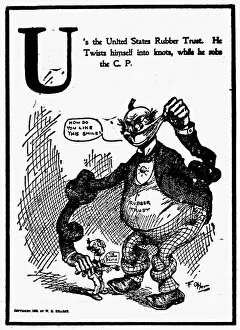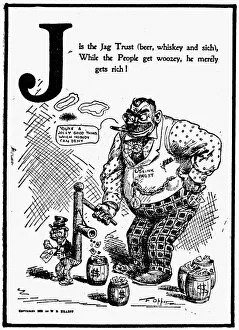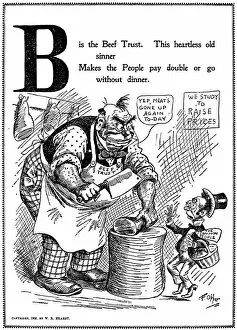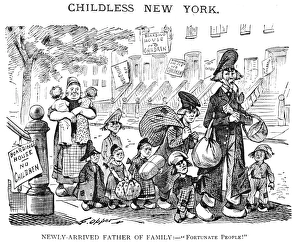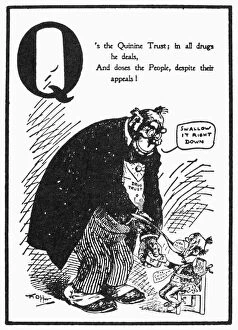Opper Collection
In the world of 19th-century cartoons, Frederick Burr Opper was a master at capturing the essence of society's most prominent figures and events
All Professionally Made to Order for Quick Shipping
In the world of 19th-century cartoons, Frederick Burr Opper was a master at capturing the essence of society's most prominent figures and events. One such cartoon from 1882 depicted Wall Street as Jay Gould's private bowling alley, symbolizing his control over the financial realm. Another notable figure during this time was Monsieur de Blowitz, Paris correspondent of The Times. Known for his insightful reporting, he played a significant role in shaping public opinion. But it wasn't just individuals who were subject to Opper's satirical pen. In 1902, he created an alphabet-themed cartoon that mocked the beef trust, highlighting its monopolistic practices. Immigration was also a topic that caught Opper's attention. In an 1883 cartoon, he suggested that immigrants should be thoroughly examined before entering America—an idea reflective of the concerns surrounding immigration at that time. Opper even found humor in iconic symbols like the Statue of Liberty. His 1885 cartoon proposed letting Lady Liberty earn her construction costs through advertising—a clever commentary on commercialization creeping into every aspect of American life. The railroad and oil trusts didn't escape Opper's scrutiny either. Both were satirized in his anti-trust cartoons from 1902—testament to his keen observation and critique of powerful entities abusing their influence. Income tax became another point of interest for Opper when he portrayed millionaire Russell Sage alongside Hetty Green and George in a cartoon from 1895. This depiction shed light on societal debates surrounding wealth distribution and taxation during this era. Religion also fell under Opper's lens with his portrayal of "Sensation Sermons" in 1883—a commentary on religious fervor taking precedence over genuine spirituality. Amongst these influential figures and events stood Henri de Blowitz, a Bohemian journalist whose work left an indelible mark on journalism history. And then there was Prince Otto von Bismarck, the Prussian statesman who shaped European politics during his time.


